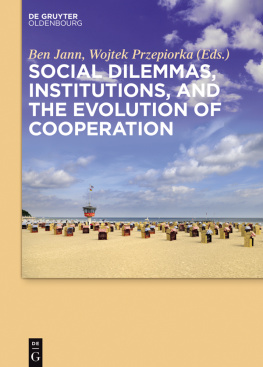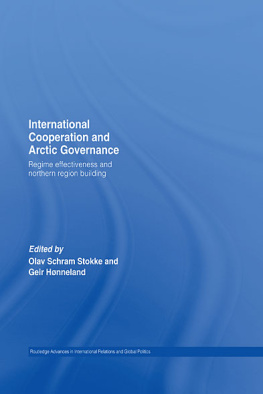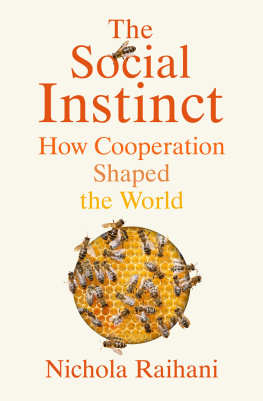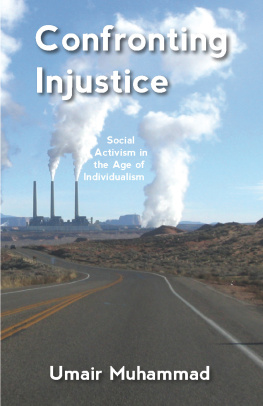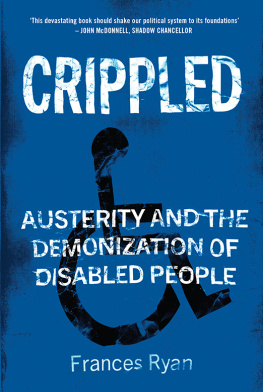
Published by
The University of Alberta Press
Ring House 2
Edmonton, Alberta, Canada T6G 2E1
www.uap.ualberta.ca
Copyright 2016 The University of Alberta Press
Library and Archives Canada Cataloguing in Publication
Care, cooperation and activism in Canadas northern social economy/Frances Abele & Chris Southcott, editors.
Includes bibliographical references and index.
Issued in print and electronic formats.
ISBN 9781772120875 (paperback).
ISBN 9781772121100 (epub).
ISBN 9781772121117 (mobi).
ISBN 9781772121124 (pdf)
1. CooperationCanada, NorthernCase studies. 2.Cooperative societiesCanada, NorthernCase studies. 3. Native peoplesCanada, NorthernSocial conditionsCase studies. 4. Native peoplesCanada, NorthernEconomic conditionsCase studies. 5. Canada, NorthernSocial conditionsCase studies. 6. Canada, NorthernEconomic conditionsCase studies. I. Abele, Frances, author, editor II. Southcott, Chris, author, editor
| HD3448.C39 2016 | 334.0971 |
| C2016-904354-1 | C2016-904355-X |
First edition, first printing, 2016.
First electronic edition, 2016.
Digital conversion by Transforma Pvt. Ltd.
Copyediting and proofreading by Kirsten Craven.
Indexing by Stephen Ullstrom.
Cover design by Denise Ahlefeldt.
All rights reserved. No part of this publication may be reproduced, stored in a retrieval system, or transmitted in any form or by any means (electronic, mechanical, photocopying, recording, or otherwise) without prior written consent. Contact the University of Alberta Press for further details.
The University of Alberta Press supports copyright. Copyright fuels creativity, encourages diverse voices, promotes free speech, and creates a vibrant culture. Thank you for buying an authorized edition of this book and for complying with the copyright laws by not reproducing, scanning, or distributing any part of it in any form without permission. You are supporting writers and allowing University of Alberta Press to continue to publish books for every reader.
The University of Alberta Press gratefully acknowledges the support received for its publishing program from the Government of Canada, the Canada Council for the Arts, and the Government of Alberta through the Alberta Media Fund.
Contents
Frances Abele and Chris Southcott
Matthew Beaudoin
Matthew Beaudoin
A Social Fishery Venturing off the Coast of Northern Labrador
Jean-Sbastien Boutet
Cdric Drouin and Frdric Moisan
Lucille Villaseor-Caron
History and Impact upon the Community of Repulse Bay, Nunavut
Jennifer Alsop
Noor Johnson
A Case Study of Illiniariuqsarvik Igloolik Head Start
Sheena Kennedy Dalseg
The Beat That Sustains
Julia Christensen
A History
Jerald Sabin
The Inuvik Community Greenhouse Project
Julia Christensen
A Turning Point for the Northern Social Economy
Moses Hernandez and Rajiv Rawat
Kiri Staples
Valoree Walker, Joseph Moise and Kiri Staples
The Case for Volunteer Centres
Kiri Staples and Valoree Walker
Frances Abele and Chris Southcott
Acknowledgements
We would like to acknowledge the contributions made to this volume by collaborators in the social economy organizations profiled here, for their patience with researchers inquiries and their open-minded and open-hearted approach to working with the Social Economy Research Network of Northern Canada. Thank you to the authors in this volume for their interest in building a portrait of an oft-overlooked corner of northern social, economic and political life. Kelly Black of Carleton University, and Linda Cameron, Duncan Turner, Kirsten Craven and the staff of the University of Alberta Press helped us to make the book clear, while Valoree Walker held the enterprise together as she has done on so many of our projects, while expertly curating the photographs. Frances Abele thanks George Kinloch for inspiration, and for his unstinting intellectual and domestic support. Chris Southcott thanks Laura Hope-Southcott for her understanding and support throughout the project.
Base funding for the Social Economy Research Network for Northern Canada was provided by the Social Sciences and Humanities Research Council of Canada.
Introduction
Frances Abele and Chris Southcott
Few regions have experienced the degree of rapid economic change that northern Canada has over the past one hundred years. Communities that have long relied upon harvesting from the land and sea are now part of territorial economies dominated by the industrial exploitation of natural resources. They face an uncertain future in a globalized economy dominated by accelerating international trade and knowledge-based economic institutions. These changes, and accompanying state policies, have resulted in tremendous social and economic stress. With accelerating development pressures, northerners face both new challenges and opportunities to benefit.
New forms of self-government offer the potential for political empowerment, but they will not automatically deliver economic or social empowerment. Northern economies are dependent economies, increasingly shaped by large-scale mineral development. In this circumstance, Aboriginal organizations and governments and the territorial and federal states may play both a buffering and a facilitating role. Northern political innovations and new institutions are central to these roles: for example, demands for local participation in environmental and development decisions and the rise of resource co-management arrangements have opened space for consideration of economic alternatives, discussed and debated in a variety of fora.
In this book, we draw attention to some aspects of the northern political economy that have not, generally, been topics of discussion when people ponder the Norths economic futureeven though these often overlooked institutions are effective participants in northern political life, while others provide a wide range of services that are essential to northern societies well-being. Collectively, these institutions are the northern social economy. The term social economy is used in a variety of senses in Canada; in the North, the term has two somewhat complementary meanings. For our purposes in this volume, social economy is understood as an extension of what in the past has been termed community economic development. It seeks to offer, and legitimate, a third aspect of economic development that in the past has been pushed aside in favour of large-scale, private-sector resource development and state-based initiatives. It refers to a strategy to develop and enhance the vitality, and the social and educational capital, of northern communities through organizations that are more directly controlled by the communities themselves. The social economy refers to those institutions in the community that are neither primarily profit-oriented nor state-driven. It refers to organizations whose primary purpose is to serve social goals in the community and whose structures are based on participatory democratic principles.
The chapters in this special collection are linked to the establishment of a network of researchers and northern community organizations looking into the potential of social economic development in Canadas North. Research done by this network is concentrating on the ability of social economic organizations to deal with several key political and economic characteristics that dominate the economies of northern communities. What our research has shown is that when they work together, individuals in northern communities can be extremely innovative and effective in providing solutions to many of the challenges the region is facing. While they often have few resources to mobilize, community groups have time and time again proven to be able to provide necessary services to meet their needs. This book presents a series of case studies that we believe illustrate the ways that community groups in Canadas North are using whatever limited resources are at hand to organize themselves to solve the economic and social problems they face. We hope this book will help convince others that given more resources, some of the best answers to what communities in the region need can come from the communities themselves.






